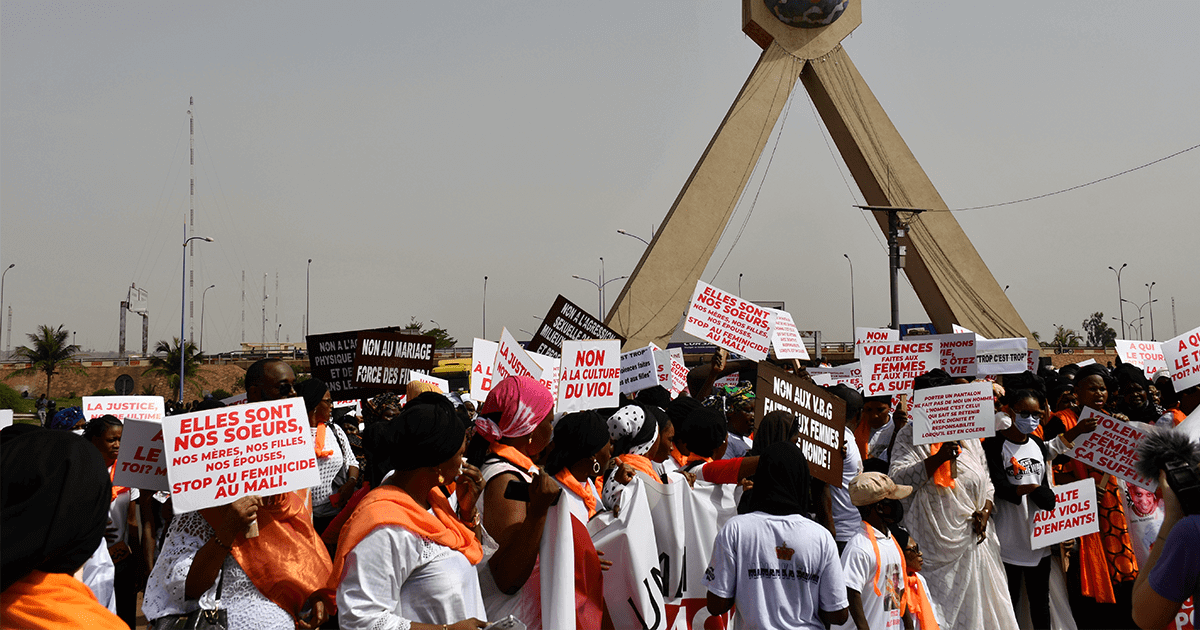Judicial response to conflict-related sexual violence in Mali is inadequate
- Legal Documentation
- News
25 November 2022

Lawyers Without Borders Canada and the International Federation for Human Rights observe with great regret the persistence of conflict-related sexual violence in Mali, which has been subject to a recent resurgence, and the absence of adequate judicial response to the magnitude of the scourge. In a note released on the occasion of the International Day for the Elimination of Violence against Women, the two organizations call on the Malian authorities to compensate for the gaps in the legal framework and the slowness of the judicial system.
Conflict-related sexual violence encompasses several serious human rights violations, including: rape, sexual slavery, forced prostitution, forced pregnancy, forced abortion, enforced sterilization, forced marriage, and any other form of sexual violence of comparable gravity perpetrated against women, men, girls or boys that is directly or indirectly linked to a conflict.
The legal framework in Mali with regard to sexual violence has several limits which negatively impact the effective suppression of these crimes. Only rape and indecent assault are likely to be prosecuted as crimes. The definitions of these two crimes have shortcomings and don’t seem to be fully aligned with the international law provisions in that regard.
To date, 8 cases involving a total of 197 survivors of conflict-related sexual violence committed between 2012 and 2013 are still pending due to a considerable procedural backlog. In addition, cases of conflict-related sexual violence remain unreported.
In their common note, Lawyers Without Borders Canada and the International Federation for Human Rights make a series of recommendations to the Malian government, judicial authorities, and the National Transitional Council to end impunity for sexual violence, particularly conflict related violence.